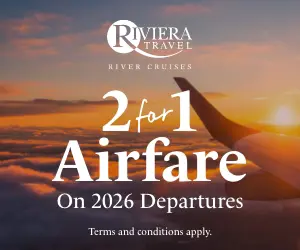In Egypt Crisis, Traveler Tracking App Proves Timely
by Fred GebhartWhen the Egyptian army took power on July 3, how long did it take your company to locate travelers in Egypt?
Shelby Lemaire, global travel manager for iRobot, waited just a few seconds to find out the company had no travelers in Egypt. All it took was a quick query on her World Travel dashboard.
World Travel, headquartered in the Philadelphia area, has an app that lets iRobot identify where its travelers are “at any time and in real time,” Lemaire told Travel Market Report.
“We know where they are right now. We can drill down from our dashboard to look at specific itineraries or specific locales. That is invaluable for keeping our travelers out of trouble or getting them out if they are in trouble.”
Check your own travelers
World Travel is hardly the only TMC that can track travelers on the road, said chief information officer George Gadebusch. But most TMCs and third party vendors run traveler-location reports at regular intervals, typically once a day, and push the information out to clients whether they need it or not.
World Travel lets clients conduct their own search.
That’s what Lemaire did when she woke up on July 3 to reports of a coup in Egypt. Instead of contacting her TMC, Lemaire checked on her travelers using a World Travel application called Where Are My Travelers? The app promptly told her that iRobot had no travelers in Egypt and none scheduled to travel there in the immediate future.
Gadebusch explained that World Travel gives travel managers and authorized users a direct feed into its system. “It’s their data, after all, and it’s our job to serve it up in a format that helps them make faster, smarter decisions any time of the day or night.”
Serves multiple purposes
It doesn’t matter why a travel manager needs to locate travelers. It could be because of a natural disaster or a civil uprising or a family emergency that affects a single traveler.
The need also could be as routine as tracking air, hotel and car data for a department or for an individual traveler in order to measure spend and evaluate the potential impact of different booking or spending patterns.
The app is not all-seeing, Gadebusch said. Reports are based on booking and ticketing data, so travel managers won’t be able to find travelers who don’t stick to their booked itineraries. Phone-based location using GPS could plug that particular hole, and existing third party products already provide telephone tracking services.
Risk management solution
World Travel is one of the largest independently owned travel management companies in the U.S. Its focus is on mid-market companies – clients with annual air spend between $100,000 and $30 million. These companies are big enough to need managed travel but not necessarily big enough to justify a full-blown travel department and travel risk management solutions.
Risk management was the impetus for developing the Where Are My Travelers? app, Gadebusch said. With help from SAP partner Altek Solutions, World Travel tackled duty of care from two sides.
The back end is automatic merging of multiple streams of traveler booking and purchasing data. World Travel centralizes duty of care functions, monitoring traveler patterns and global events.
If something happens, say a military coup in Egypt or an earthquake in China, World Travel searches its client base for travelers who could be affected and pushes information out to the appropriate travel managers and/or individual travelers.
The front end lets individual travel managers search their own traveler universe.
Gather & share info
Lemaire uses Where Are My Travelers? for multiple purposes. In addition to letting her locate employees, it is a risk management tool that lets her gather and share information with every traveler who is, or could be, headed to a potential risk area.
“It is important to discuss all the potential risks with our travelers before they ever leave,” she said. “We are very much in tune with safeguarding our employees. It is about mitigating and managing risks when our people are traveling.”
The risks are not always as obvious as a military coup. In some destinations, the danger might be unscrupulous taxi drivers. Being able to customize traveler tracking reports helps her set up secure transportation, rather than exposing travelers to avoidable risks on the ground.
“This lets us manage our employees and our duty of care without having to have a full-blow risk management program,” she said.



















